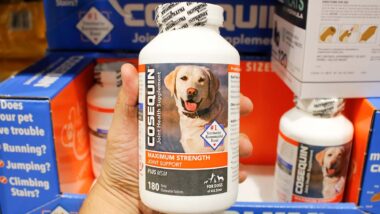Top Class Actions’s website and social media posts use affiliate links. If you make a purchase using such links, we may receive a commission, but it will not result in any additional charges to you. Please review our Affiliate Link Disclosure for more information.

A Washington State man has alleged he developed bladder cancer after taking the heartburn medication Zantac and its generic equivalents for a decade.
In the Zantac lawsuit, filed in the Southern District of Florida on March 29, Plaintiff Christopher Miller and his wife Ashley Miller of Shelton, Washington, claim that he was diagnosed with bladder cancer in July 2020.
This diagnosis came several months after he stopped using ranitidine in October 2019, around the time of the voluntary recalls. Miller said in the Zantac lawsuit that he had been using ranitidine since as far back as November 2009.
Miller alleged that drug manufacturers GlaxoSmithKline, Boehringer Ingelheim Pharmaceuticals Inc., Sanofi U.S. Services Inc., and Chattem Inc. produced ranitidine products with design defects and negligent product containers as well as failed to include proper warnings, precautions, and expiration dates.
In the same Zantac lawsuit, Miller’s wife, Ashley, alleged “loss of consortium,” or loss of benefits of a family relationship, due to the drug manufacturers’ actions.
Zantac and generic ranitidine were the subjects of voluntary recalls from several manufacturers toward the end of 2019 when the drug was connected to N-Nitrosodimethyline (NDMA), a probable human carcinogen.
The FDA requested a few months later, in April 2020, that all ranitidine medications be removed from shelves, and hundreds of Zantac lawsuits have been filed against companies that produce ranitidine. Enough lawsuits have been filed that a multidistrict litigation, or MDL, was created in February 2020, which transferred all Zantac cancer lawsuits that had been filed in federal court to the U.S. District Court for the Southern District of Florida.
The counts in the complaints include claims raised under consumer protection laws, strict products liability, failure to warn, negligence, deceptive trade practices, breaches of express and implied warranty, wrongful death, and others.
A Florida federal judge dismissed state claims in the multidistrict litigation in December, ruling that federal law preempts the labeling and misbranding state law claims asserted in the complaints, but still gave plaintiffs another chance to move forward with the litigation.
As summarized in the 52-page order from December, the generic drug manufacturers relied on two Supreme Court opinions, arguing that state-law claims alleging design defect and failure to warn “are preempted because they cannot remedy design defects or provide additional warnings while remaining in compliance with federal law.”
This means that the manufacturers would first need to seek permission from the FDA to make such alterations in order to comply with state law.
Plaintiffs maintained that federal law could not preempt their state law claims because they were concerned about the misbranding of the drug at the time the product was sold — as well as the manufacturers’ failure to warn or take other measures that they could have, while still complying with federal law.
The judge in the December ruling held that despite the plaintiffs’ misbranding argument, the claims alleging the design defect and failure to warn should be preempted, as well as the product and mislabeling claims.
However, the judge allowed plaintiffs another opportunity to replead other claims raised surrounding expiration dates, as well as allegations concerning the storage, testing, and transportation conditions of the contaminated drug.
The order also granted plaintiffs leave to replead allegations that the manufacturers should have warned the FDA of risks, in addition to manufacturing defect claims and Magnuson-Moss Warranty Act violation claims.
Join a Free Zantac Cancer Lawsuit Investigation
If you or a loved one was diagnosed with stomach cancer or bladder cancer after taking Zantac or another ranitidine medication, you may qualify to join this Zantac cancer lawsuit investigation. Learn more by filling out the form on this page for a free case evaluation by a Zantac cancer injury lawyer.
ATTORNEY ADVERTISING
Top Class Actions is a Proud Member of the American Bar Association
LEGAL INFORMATION IS NOT LEGAL ADVICE
Top Class Actions Legal Statement
©2008 – 2024 Top Class Actions® LLC
Various Trademarks held by their respective owners
This website is not intended for viewing or usage by European Union citizens.
Get Help – It’s Free
Get a Free Zantac Cancer Lawsuit Claim Review
If you qualify, an attorney will contact you to discuss the details of your potential case at no charge to you.
E-mail any problems with this form to:
Questions@TopClassActions.com.












